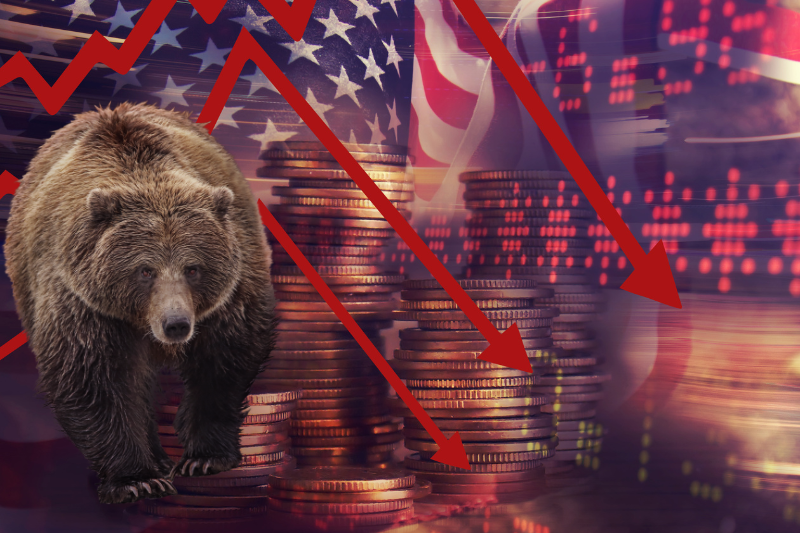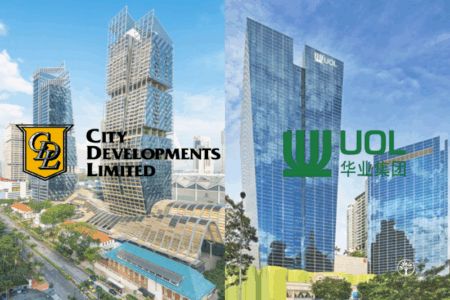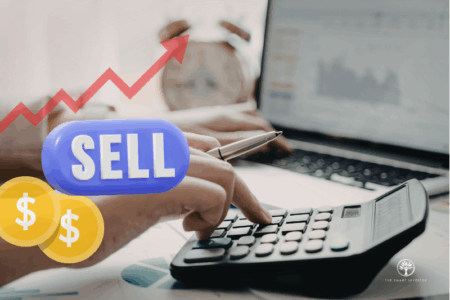Trump’s tariffs have wreaked havoc across global stock markets as he imposed taxes on more than 180 countries.
Although the US President declared a reprieve of sorts in the following days, investors remain jittery and are closely watching his moves to see how developments unfold.
Meanwhile, the NASDAQ Composite Index has crashed into a bear market while the bellwether S&P 500 Index entered a correction.
As Trump dithers and makes changes to his tariff regime, investors may wish to look at four compelling US growth stocks that they can add to their buy watchlists.
Accenture (NYSE: ACN)
Accenture is a professional services company that helps governments and organisations build their digital capabilities, optimise operations, and accelerate their revenue growth.
Shares of the consultancy firm have declined 18.5% year-to-date and recently touched a 52-week low of US$275.01.
Despite the fall, Accenture reported a strong set of results for the first half of fiscal 2025 (1H FY2025) ending 28 February 2025.
Revenue rose 7.3% year on year to US$34.3 billion while operating profit climbed 12.6% year on year to US$5.2 billion.
Net profit increased by 11.3% year on year to US$4.1 billion.
The consultancy business also generated a healthy positive free cash flow of US$3.55 billion for 1H FY2025, 46.8% higher than a year ago.
Accenture declared a quarterly dividend of US$1.48, 14.7% above the US$1.29 that was paid out in the previous corresponding period.
The company offered a sanguine outlook for 2025, expecting a 5% to 7% year-on-year revenue growth.
Diluted earnings per share is projected to be from US$12.55 to US$12.79, a 10% to 12% year-on-year increase.
Dover Corporation (NYSE: DOV)
Dover is a diversified global manufacturer that produces innovative equipment and components, consumable supplies, aftermarket parts, and software and digital solutions.
Dover’s share price crashed 12.7% year-to-date but was slightly above its 52-week low of US$143,04.
The manufacturer reported a mixed set of earnings for 2024.
Revenue inched up 0.8% year on year to US$7.7 billion but operating profit dipped 1.1% year on year to US$1.2 billion.
Net profit from continuing operations and excluding exceptional items tumbled 15% year on year to US$802.1 million as the business was hit by a larger tax bill for 2024.
The business generated a healthy positive free cash flow of US$920.3 million, though this was lower than the prior year’s US$1.04 billion.
For the current year, Dover increased its quarterly dividend to US$0.515, up by US$0.005, marking the company’s 69th consecutive year of increasing dividends.
For 2025, Dover expects full-year revenue growth of between 2% to 4% year on year with earnings per share in the range of US$8.16 to US$8.36 (2024: US$10.09).
General Dynamics (NYSE: GD)
General Dynamics is a global aerospace and defence company offering a portfolio of products and services in business aviation, ship construction and repair, land combat vehicles, and weapons systems.
The company recently hit a 52-week low of US$239 but has rebounded to be up 6% year-to-date.
General Dynamics reported a commendable set of earnings for 2024 with revenue rising 12.98% year on year to US$47.7 billion.
Operating profit increased by 13% year on year to US$4.8 billion while net profit climbed 14.1% year on year to US$3.8 billion.
General Dynamics also generated a positive free cash flow of US$3.2 billion for the year.
The company recently upped its quarterly dividend to US$1.50 from US$1.42 a year ago.
A total of 136 aircraft were delivered last year, of which 118 were large-cabin aircraft.
The company ended the year with US$90.6 billion in backlog for its order book.
Norwegian Cruise Lines (NYSE: NCLH)
Norwegian Cruise Lines, or NCL, is a global cruise company which operates three cruise brands – Norwegian Cruise Line, Oceania Cruises, and Regent Seven Seas Cruises.
The company owns a fleet of 32 ships that offer itineraries to around 700 destinations worldwide.
Shares of NCL have plummeted 37.4% year-to-date and touched their 52-week low of US$14.21 recently.
The cruise company reported a strong performance for 2024 with revenue rising 10.9% year on year to US$9.5 billion.
Operating profit surged 57.5% year on year to US$1.5 billion while net profit soared more than fivefold year on year to US$910.3 million, aided by an income tax credit.
NCL also generated a positive free cash flow of US$838.9 million for 2024, reversing the previous year’s negative free cash flow of US$744.6 million.
The company announced an ambitious newbuild programme to construct eight state-of-the-art vessels representing around 25,000 additional berths, as well as a multi-ship pier at Great Stirrup Cay.
Management expects occupancy to hit 103.4% for 2025 with a net yield growth of 3%.
Adjusted net income is projected to come in around US$1.07 billion for the year.
NCL saw strong customer demand for its offerings across various itineraries and brands throughout 2025 and into 2026, and its advance ticket sales balance ended 2024 at US$3.2 billion.
Many investors think DeepSeek lowering AI costs means less revenue for tech companies. But that’s not the full story, and believing it could cost you. In our latest free report, we unpack a surprising insight from a top tech CEO who explains why lower AI costs may actually drive more tech spending, not less — and he’s got the numbers to prove it. If you’ve misunderstood this trend, you could miss out on some of the biggest investment opportunities. Click here now to access “How GenAI is Reshaping the Stock Market” today to get the full breakdown.
Follow us on Facebook and Telegram for the latest investing news and analyses!
Disclosure: Royston Yang does not own shares in any of the companies mentioned.





